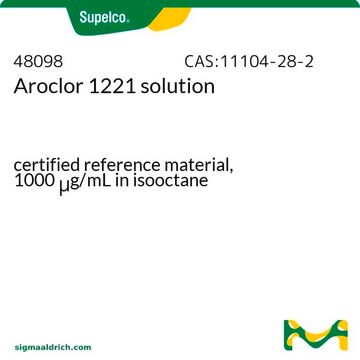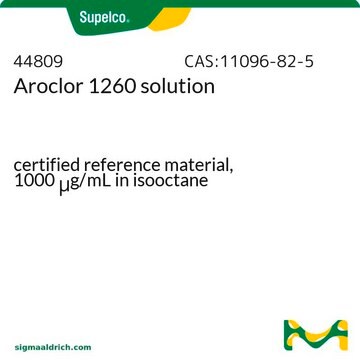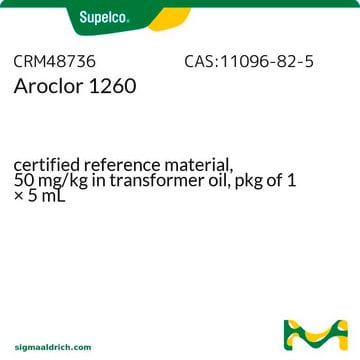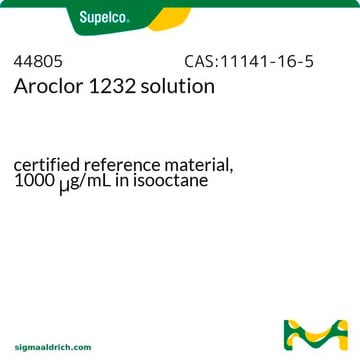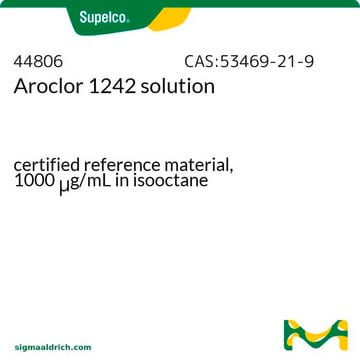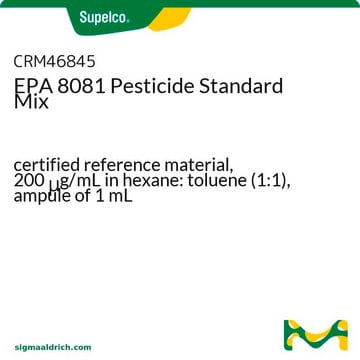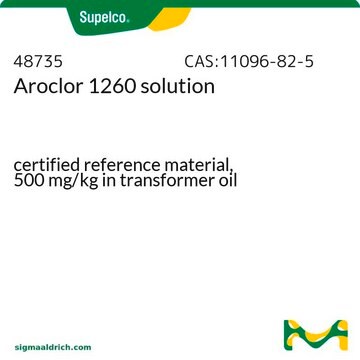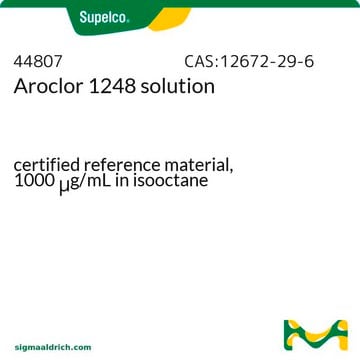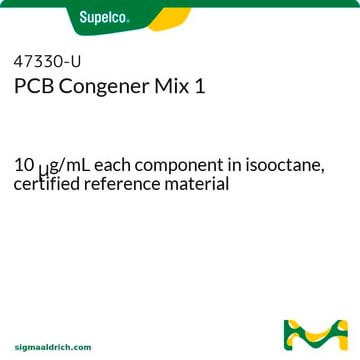48097
Aroclor 1016 solution
certified reference material, 1000 μg/mL in isooctane
About This Item
Recommended Products
grade
certified reference material
TraceCERT®
Quality Level
Agency
EPA 8080,8081,8082,Mar ′90, Dec ′90, Aug ′91 Statement of Work
EPA OLM04 (Statement of Work)
product line
TraceCERT®
CofA
current certificate can be downloaded
feature
standard type calibration
packaging
ampule of 1 mL
concentration
1000 μg/mL in isooctane
technique(s)
HPLC: suitable
gas chromatography (GC): suitable
application(s)
environmental
format
single component solution
storage temp.
2-30°C
SMILES string
Clc1cc(cc(c1)c2cc(ccc2)Cl)Cl
InChI
1S/C12H7Cl3/c13-10-3-1-2-8(4-10)9-5-11(14)7-12(15)6-9/h1-7H
InChI key
RIBGNAJQTOXRDK-UHFFFAOYSA-N
Looking for similar products? Visit Product Comparison Guide
General description
Application
Other Notes
Legal Information
Not finding the right product?
Try our Product Selector Tool.
Signal Word
Danger
Hazard Statements
Precautionary Statements
Hazard Classifications
Aquatic Acute 1 - Aquatic Chronic 1 - Asp. Tox. 1 - Flam. Liq. 2 - Skin Irrit. 2 - STOT RE 2 - STOT SE 3
Target Organs
Central nervous system
Storage Class Code
3 - Flammable liquids
WGK
WGK 3
Flash Point(F)
10.4 °F - closed cup
Flash Point(C)
-12 °C - closed cup
Choose from one of the most recent versions:
Already Own This Product?
Find documentation for the products that you have recently purchased in the Document Library.
Customers Also Viewed
Our team of scientists has experience in all areas of research including Life Science, Material Science, Chemical Synthesis, Chromatography, Analytical and many others.
Contact Technical Service